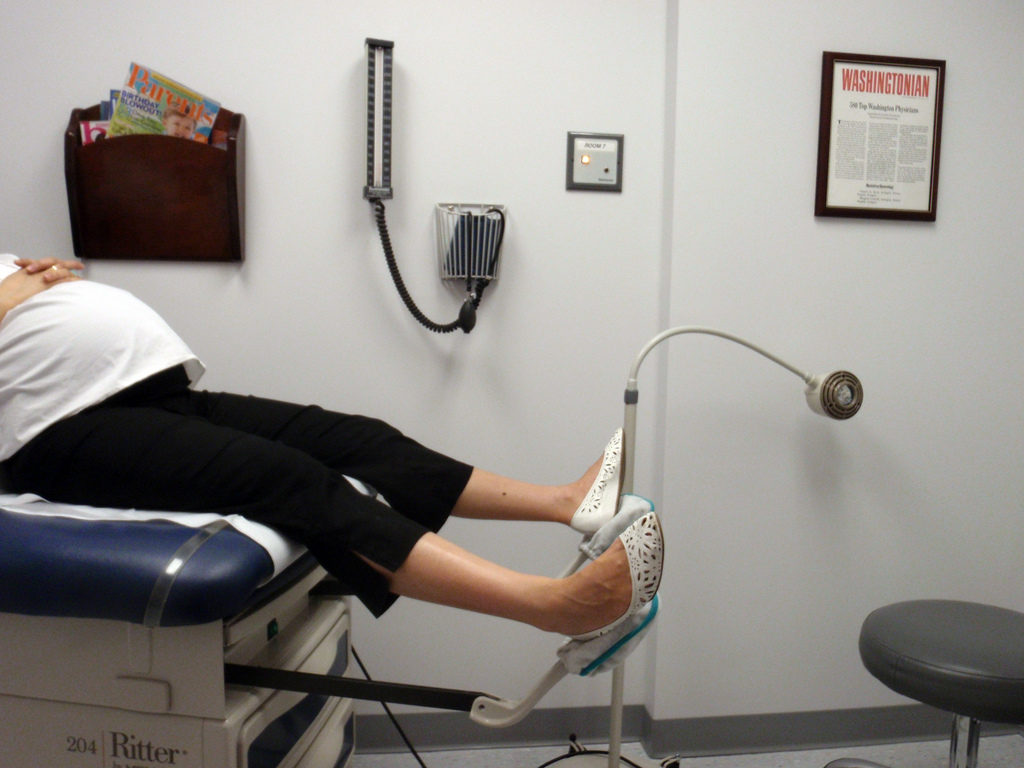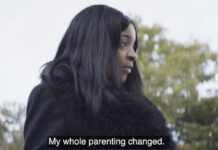New research, based on data from almost a million children in Denmark, suggests that mothers who use antidepressants during pregnancy are more likely to have children who are diagnosed with psychological problems. In fact, mothers who continued using antidepressants during pregnancy were 27% more likely to have a child with a psychiatric diagnosis than mothers who discontinued use before becoming pregnant. Specifically, children were 176% more likely to develop a mood disorder, and 23% more likely to have Autism.

This finding is corroborated by a number of other studies. A Finnish study from last year found that children were four times as likely to develop a mood disorder if their mother used antidepressants during pregnancy. One recent study demonstrated that autistic children were 82% more likely than to have a mother who took SSRIs while pregnant. Some studies have also found an increased risk of birth defects, as well as miscarriage, low birth weight, pre-term birth, and other complications.
The study was led by Xiaoqin Liu at Aarhus University, Denmark. The data came from the Danish national registers, which contains thorough records of interactions with medical care, including prescriptions filled, as well as demographic data. In total, 905,383 children were included in the study. Their records were followed for up to 16.5 years. The children were categorized based on their mothers’ use of antidepressants: none, discontinued before pregnancy, continued during pregnancy or started during pregnancy.
“We observed increased risks for psychiatric disorders among children of mothers who used antidepressants before and/or during pregnancy, compared with mothers with no record of antidepressant use,” Liu writes. “Furthermore, we observed an increased risk of psychiatric disorders in children whose mothers continued antidepressant use during pregnancy, compared with mothers who discontinued.”
The researchers found that the risk was the same whether the mother was taking SSRIs or other antidepressants. However, if mothers were taking more than one class of drug, the risk was even higher. There was also no difference in risk between specific drugs (e.g. Prozac and Zoloft had about the same risk).
The researchers attempted to control for a number of alternative explanations, which makes their case much stronger. For instance, they controlled for mother’s age, other prescribed drugs, parental smoking habits, mothers’ medical visits during pregnancy, marital status, income, education, location (e.g. rural, city, suburb), and calendar year of delivery (divided into 3 groups, 1998-2002, 2003-07, and 2008-12).
The researchers wanted to make their study as rigorous as possible, so they conducted seven sensitivity analyses. These tests are run to make the study less likely to find an effect. If an effect is still found after the sensitivity analyses, it is more likely to be a true effect.
For instance, the researchers considered the idea that children growing up with a parent with a psychiatric diagnosis might be more likely to develop problems due to the family interactions. To control for this idea, the researchers included father’s history of medication use as well. They found that the effect of mothers’ antidepressant use far exceeded the effect of fathers’ use. This indicates that it was likely in utero exposure to the antidepressant that was responsible for the effect, rather than the effect of parental behavior.
Other sensitivity analyses in the current study were:
- Only including mothers with at least two prescriptions filled during pregnancy, to control for mothers who may have filled a prescription, but not taken the antidepressants
- Defining psychiatric disorders in children more strictly (at least 2 hospital visits for a psychiatric reason), to ensure that less severe problems were not skewing the data
- Comparing mothers with previous psychiatric diagnoses to those without previous diagnoses
- Controlling for the gender of the children
In all these cases, the results still held for the findings. That is, even when all these potential explanations were included, the risk was still higher for children of mothers who had taken antidepressants during pregnancy.
These analyses all add to the strength of the study and rule out other possible causes.
The researchers, who received funding for the study from a foundation set up by Lundbeck (a leading pharmaceutical company), suggest that these findings do not change the current approach to antidepressant prescribing. They argue that “Discontinuation of antidepressant treatment can lead to psychiatric episodes with subsequent long-lasting adverse effects on both the mother and child.”
This study finds that use of antidepressants significantly increases children’s risk of mood disorder—adding to the risk of miscarriage, birth defects, and other problems of pregnancy found in other studies. In addition, this study found that Autism was more common in these offspring. However, according to these researchers, discontinuation of antidepressant treatment still may not be appropriate.
****
Liu, X., Agerbo, E., Ingstrup, K. G., Musliner, K., Meltzer-Brody, S., Bergink, V., & Munk-Olsen, T. (2017). Antidepressant use during pregnancy and psychiatric disorders in offspring: Danish nationwide register-based cohort study. BMJ, 358(j3668). doi: https://doi.org/10.1136/bmj.j3668 (Link)














They don’t provide any evidence that stopping antidepressants have negative effects on mothers or children. They just blandly stated it. They have not provided studies on to show the relative benefits of staying on or stopping the drugs, or of providing other kinds of help.
Report comment
In order to provide such studies they would need to conduct them. And they don’t wanna!
Report comment
I was at a meeting a year or two back where a very prominent psychiatrist was speaking. He’s supposedly one of the premier experts in the United States concerning the “psychiatric care of pregnant women”. In his talk he stated that he believes that there are no adverse effects for pregnancy caused by any of the psychiatric drugs, both antidepressants and antipsychotics. In my opinion he was very arrogant and puffed up. And even if there were any effects it’s better for the women and their children to experience those than for the mothesr to be psychotic!
I got up and left the talk at that point.
Report comment
If the woman were suicidal and killed herself the baby would die. Other than that, how can her hearing voices or whatever harm the child?
Here’s another factor. Could being born to a psychiatric prisoner make children more vulnerable to “diagnosis” from the meddling social workers and “treatment teams” hovering around the family?
Report comment
“The researchers attempted to control for a number of alternative explanations, which makes their case much stronger” but did not control for the obvious explanation. It seems unbelievable that they failed to consider that growing up with parents considered “clinically depressed” is distressful (naturally causes increased emotional problems). It is not fair to children to have so many negative (depressing) messages directed at their parents; it causes inter-generational problems.
Report comment
“To control for this idea, the researchers included father’s history of medication use as well. They found that the effect of mothers’ antidepressant use far exceeded the effect of fathers. This indicates that it was likely in utero exposure to the antidepressant that was responsible for the effect, rather than the effect of parental behavior.”
WOW, just… WOW… this is sloppy thinking- or writing! I’m referring to the post overall, including this section.
Nothing in this post indicates that experiments were conducted- only that studies were done. Studies often find illusory correlations, e.g., maybe the children of mothers who use antidepressants during pregnancy are either more likely to have psychiatric diagnoses because women who elect to risk taking antidepressants during pregnancy tend to carry more genes for mental illness; or parent differently than ones who don’t elect to take such meds; or somehow on average inhabit more stressful environments in some manner that also predispose their children to later diagnoses.
Nowhere is it mentioned that an experiment was done involving randomized assignment of pregnant mothers to a use or non-use condition, so therefore none of the ‘sensitivity analyses’ etc. can be said to rule out crucial possible differences in those who decided to actually take the antidepressants, diagnosis or not, e.g., that they may have more intense psychological disturbance than those who don’t actually end up taking antidepressants, especially given that with the concerns many mothers have about psych meds during pregnancy, the ones who do take them may typically feel the necessity from a greater degree of disturbance than those who don’t.
As for controlling for the fathers’ medication use, why would it be hard to hypothesize that one more-disturbed parent would not be enough to have a different net parenting effect overall on a child, especially given that mothers, even in Denmark I expect, are a lot more likely than fathers to be primary caretakers for children?
I mean… maybe antidepressant use in pregnant mothers DOES itself increase the risk of conditions in their offspring leading to psychiatric diagnoses, but these studies don’t establish any reliable sense of cause.
Please go back and learn about the fundamentals of research design, Peter!
Report comment